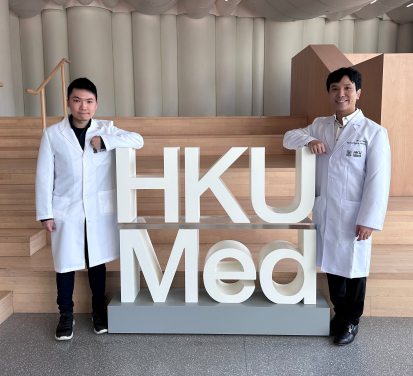A research team in the Department of Pharmacology and Pharmacy, LKS Faculty of Medicine, the University of Hong Kong (HKUMed) has discovered that sodium-glucose cotransporter 2 inhibitors (SGLT2i) could reduce the risks of renal and respiratory diseases, including end-stage renal disease (ESRD), obstructive airway disease (OAD) and pneumonia in a retrospective cohort study. These studies provided novel real-world evidence that SGLT2i could confer extra-glycaemic protection to patients with type 2 diabetes and potentially be a better alternative to an older class of glucose-lowering drugs, dipeptidyl peptidase-4 inhibitors (DPP4i). The discovery has been published in The Journal of Clinical Endocrinology & Metabolism [link to the publication] and [link to the publication], also JAMA Network Open [link to the publication].
Background
SGLT2i are a new class of second-line glucose-lowering drugs for type 2 diabetes. Placebo-controlled clinical trials and multinational observational studies have shown that besides glycaemic control, SGLT2i also confer cardiovascular and renal protection in patients with type 2 diabetes over the past few years.1, 2 However, it is not clear whether SGLT2i could provide better cardiorenal protection when compared to individual classes of older glucose-lowering drugs that have been widely prescribed in recent years, such as DPP4i. A retrospective cohort study has been conducted so to investigate the association of SGLT2i, with 4 renal outcomes, namely ESRD, albuminuria, acute renal failure (ARF), and the decline in estimated glomerular filtration rate (eGFR).
The team also conducted another retrospective cohort study to investigate the association of SGLT2i with the risk of OAD and pneumonia because SGLT2i were shown to inhibit the lung NLRP3 inflammasome activation, which has been implicated in both asthmatic airway inflammation and chronic obstructive pulmonary disease (COPD) exacerbations in some animal studies. 3, 4
Research findings and significance
From a cohort of more than 30,000 patients with type 2 diabetes in Hong Kong, after adjusting for potential confounders, the team found that compared to DPP4i, SGLT2i were significantly associated (P-value
For respiratory outcomes, SGLT2i were significantly associated with a 35% reduced risk of OAD and a 46% reduced rate of OAD exacerbations, as well as a 41% reduced risk of pneumonia. The findings showed novel evidence that SGLT2i could be protective against OAD and pneumonia. Clinical trials should be carried out for the examination of these respiratory outcomes.
Dr Cheung Ching-lung, Associate Professor, Department of Pharmacology and Pharmacy, HKUMed, commented, 'Due to the observational nature of the studies, further dedicated clinical trials and pooled analyses of studies from different populations and subgroups should be conducted so to give a bias-free conclusion. All in all, SGLT2i could potentially be a better alternative drug to DPP4i and be used as an extra-glycaemic drug.'
About the research team
The research was led by Dr Cheung Ching-lung, Associate Professor, Department of Pharmacology and Pharmacy, HKUMed. Philip Au Chun-ming, PhD student, was the first author. Other co-authors include Professor Kathryn Tan Choon Beng, Professor Bernard Cheung Man-yung, Dr David Lam Chi-leung, Dr Herbert Kwok Wang-chun and Wong Ying, Department of Medicine, School of Clinical Medicine, HKUMed; Professor Ian Wong Chi-kei, Dr Sing Chor-wing, Department of Pharmacology and Pharmacy, HKUMed; and Dr Li Hang-long.







